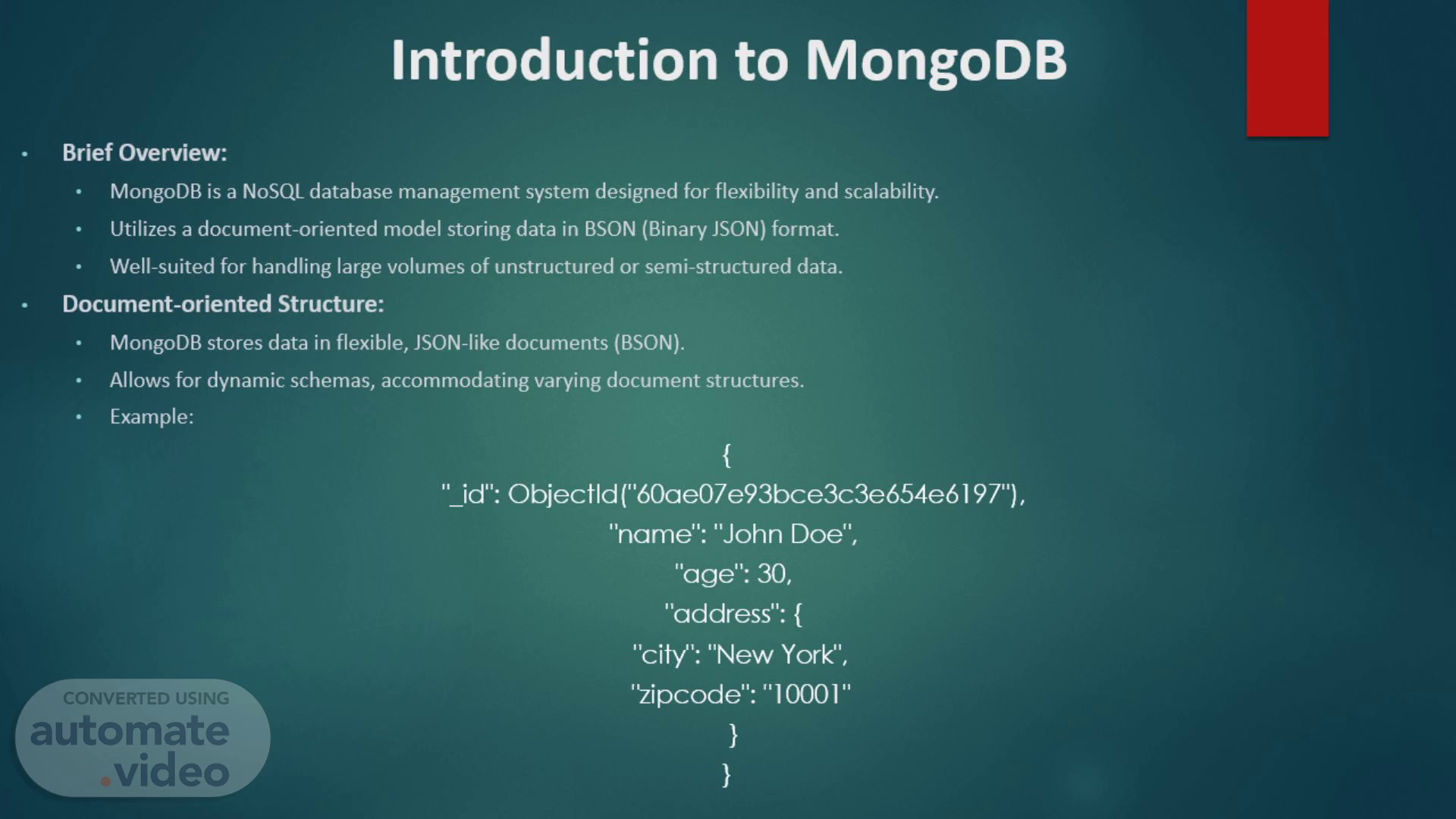
Introduction to MongoDB
Scene 1 (0s)
[Audio] Welcome to our presentation on MongoDB, a leading NoSQL database system. MongoDB is specifically designed for flexibility and scalability, utilizing a document-oriented model that stores data in BSON format, a binary representation of JSON. This makes it exceptionally well-suited for managing large volumes of unstructured or semi-structured data. Consider MongoDB as a powerful tool to simplify your development process and accommodate the dynamic nature of modern applications..
Scene 2 (35s)
[Audio] Delving into the key features of MongoDB, its document-oriented structure allows for natural representation of data in code, easing the development process. MongoDB also excels in scalability through horizontal sharding, distributing data across multiple servers, with automatic sharding ensuring efficient resource utilization. Efficient indexing is a highlight, providing a boost to query performance, and compound indexes enable targeted optimizations. These features collectively make MongoDB a robust choice for applications with evolving and demanding data needs..
Scene 3 (1m 15s)
[Audio] Now, let's explore MongoDB's flexible data modeling capabilities. With a schema design that adapts to changing requirements, MongoDB empowers developers to choose between embedding or referencing documents based on relationships. Collections act as containers, grouping related documents together, and relationships, whether One-to-One or Many-to-Many, are supported with considerations for optimal performance. MongoDB's approach to data modeling provides a versatile foundation for diverse application scenarios..
Scene 4 (1m 51s)
[Audio] Moving on to MongoDB's query language and aggregation framework, CRUD operations form the backbone of the query language, offering a simple yet powerful interface. The Aggregation Framework introduces a pipeline-based approach, allowing for complex data transformations. Practical examples will illustrate how to leverage these tools effectively, and we'll provide tips for optimizing queries to enhance overall performance. Understanding MongoDB's query language and aggregation capabilities is key to unlocking the full potential of your data..
Scene 5 (2m 27s)
[Audio] In summary, MongoDB stands out as a versatile and scalable database solution. Its document-oriented structure, scalability features like sharding, and efficient indexing contribute to its adaptability and performance. When it comes to data modeling, MongoDB offers flexibility and supports various relationship types. The query language and Aggregation Framework provide powerful tools for working with data, and adopting best practices ensures optimal system performance. As you consider MongoDB for your projects, keep these key features and best practices in mind to make the most of this powerful NoSQL database system. Thank you for joining our presentation, and we invite any questions you may have..